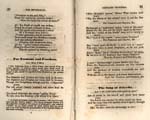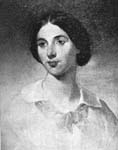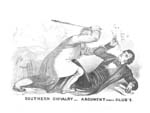The delegates to the first national Republican nominating convention meeting at Philadelphia's Musical Fund Hall rejected their most notable candidates, William Henry Seward and Salmon Portland Chase, as being too closely associated with abolitionism. Instead, they nominated John Charles Frémont, of California, a southern-born Democrat, best known for his heroic exploring expeditions across the Rocky Mountains that opened the overland route to the Pacific coast and charted the course of the future transcontinental railroad. Balancing the ticket was vice-presidential candidate William Lewis Dayton, a Whig leader of New Jersey. The party platform excoriated the Democrats on Kansas, declaring "we deny the authority of Congress, of a Territorial Legislature . . . to give legal existence to slavery in any territory of the United States." The platform conceded nothing to the Know Nothings, urged federal support for the transcontinental railroad and internal improvements, and tariff support for American manufacturers. Frémont carried eleven free states, the victorious Democratic candidate James Buchanan swept the South, and American Party candidate Millard Fillmore won only Maryland.
Fremont & Dayton Campaign Banner
The Republican Campaign Songster: a Collection of Lyrics, Original and Selected, Specially Prepared for the Friends of Freedom in the Campaign of Fifty-six (New York & Auburn: Miller, Orton & Mulligan, 1856).
Jessie Benton Fremont
Southern Chivalry – Argument versus Clubs. Lithograph, John L. Magee (Philadelphia, 1856).




